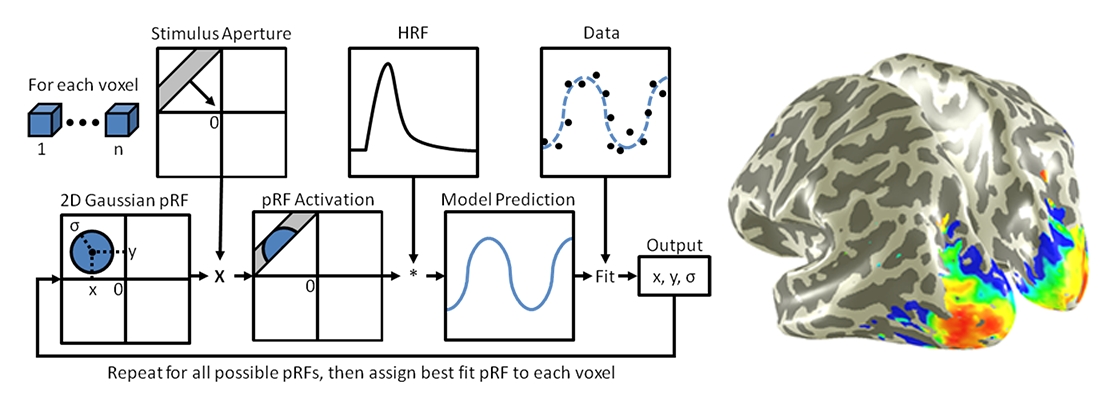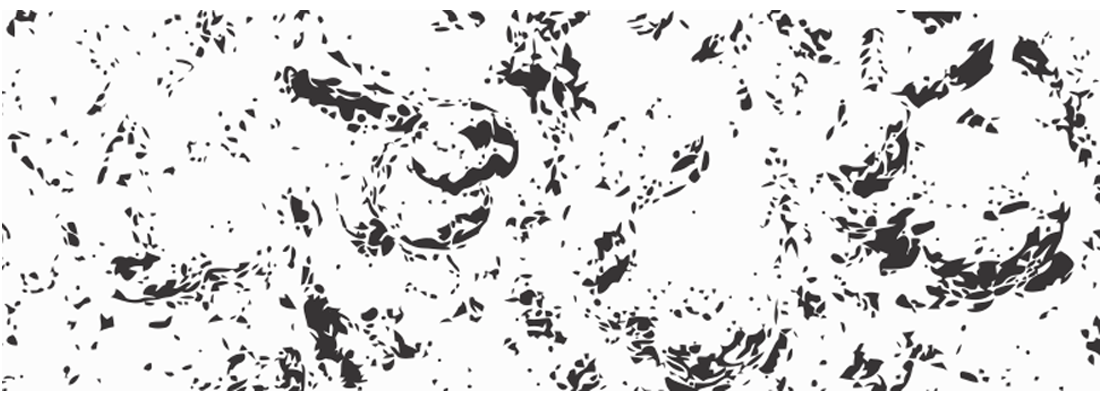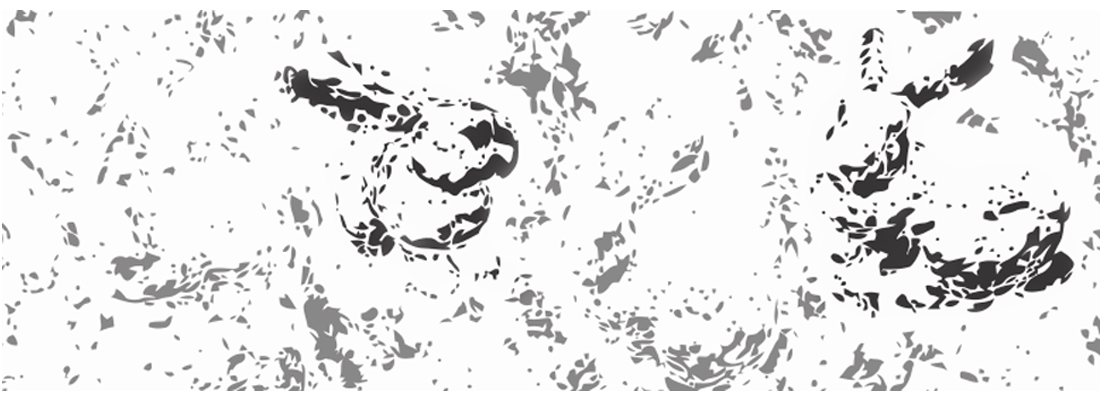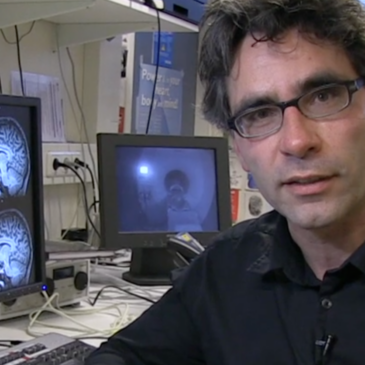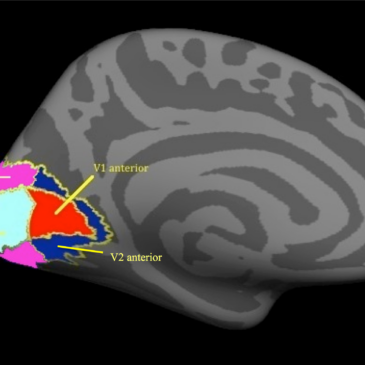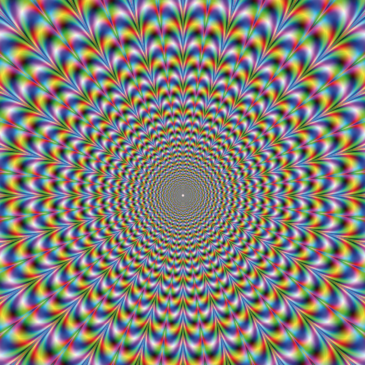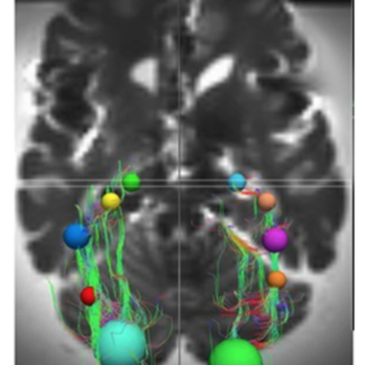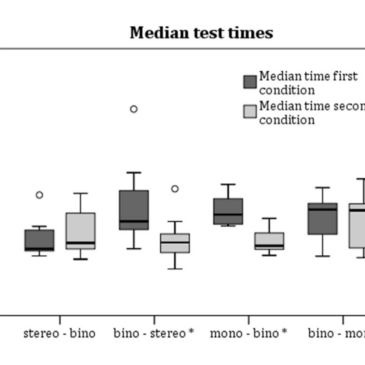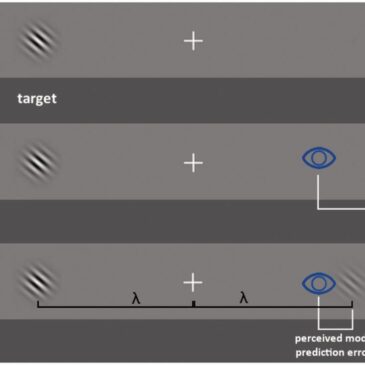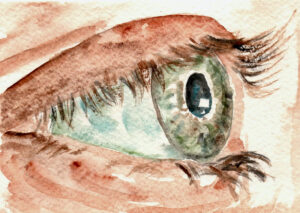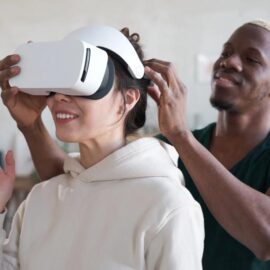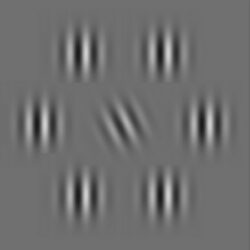Frans W. Cornelissen chair of Ophthalmology
Per April 1st, Frans W. Cornelissen has been appointed as chair of Ophthalmology, specializing in Visual Neuroscience. The goal of the visual neuroscience team is to understand visual perception in health and disease. The field is highly multi- and interdisciplinairy … Continued
Preserved retinotopic brain connectivity in macular degeneration
Does having an eye disease affect the organization of one’s visual brain? In this paper in Ophthalmic & Physiological Optics, Haak et al. used functional magnetic resonance imaging (fMRI) to measure activity in the visual brains of patients with the eye … Continued
Surface-Based Analyses of Anatomical Properties of the Visual Cortex in Macular Degeneration
Does having an eye disease also affects one’s brain? In this paper in PlosOne, Prins et al. examined MRI scans of patients with the eye disease macular degeneration to find indications for neural degeneration in the visual cortex. This is important to … Continued
Know what you see
During the upcoming weeks a series of lectures about vision will take place in Groningen. On Tuesday, second of February, Frans Cornelissen will give a lecture about Eyes Diseases and Changes in the Brain. Barbara Nordhjem will talk about the … Continued
Lateral and Medial Ventral Occipitotemporal Regions Interact During the Recognition of Images Revealed from Noise
How does the brain accomplish object recognition? In this study that appeared in Frontiers of Human Neuroscience, Barbara Nordhjem and colleagues demonstrate that lateral sections of the ventral visual cortex interact during the recognition of images that were slowly revealed from noise, indicating both are … Continued
Preservation of the optic radiations based on comparative analysis of diffusion tensor imaging tractography and anatomical dissection
Is it possible to prevent damage to the visual pathways during neurosurgical operations? In this study in Frontiers Neuroanatomy, Roland Nooij and colleagues compare neuro-imaging to dissection images to find that a good correlation between the two. Furthermore, they suggest ways to … Continued
Influence of stereoscopic vision on task performance with an operating microscope.
Is stereoscopic vision required to become a good (cataract) surgeon? In this study in the Journal of Cataract and Refractive surgery, Nibourg and colleagues used a mock up surgical test and a cataract surgery simulator to find that having stereo vision … Continued
Is adding a new class of cones to the retina sufficient to cure color-blindness?
Can new genetic methods be used to cure color blindness? In this paper in the Journal of Vision, Eli Brenner and Frans Cornelissen used simulations to determine whether replacing cone pigments suffices to cure colour blindness. Find the article [here].
Saccades Follow Perception When Judging Location
Are perceptual decision making and action based on the same or on different neural representations? In this study in iPerception, Funda Yildirim and Frans Cornelissen use a simple and straightforward localization task to show that the neural representations are the same, thereby … Continued
Structural brain MRI studies in eye diseases: are they clinically relevant? A review of current findings.
Do we need to routinely examine the brains of patients with eye diseases? In this paper in Acta Opthalmologica, Doety Prins and colleagues review previous MRI studies that examined patients with eye diseases, to find that a large range of … Continued
GLANCE Project of Dilce Tanriverdi Receives Funding to Study Visual Crowding under Low-Light Conditions in Glaucoma
People with glaucoma often struggle to see in dim lighting, but standard vision tests don’t always capture these everyday challenges. One overlooked factor may be visual crowding. Visual crowding, which is the difficulty... READ MORE
Mind your ‘stip’!
There is a need for simpler methods to assess sensitivity at different visual field locations. In a recent paper in the journal Translational Vision Sciences and Technology, Anne Vrijling and colleagues show that... READ MORE
[Position filled] PhD in the “Virtual Reality for enhanced Visual Rehabilitation” (VR4eVR) project
Our research project “Virtual Reality for enhanced Visual Rehabilitation” (VR4eVR: say ‘VR forever’) aims at finding out how virtual reality (and fMRI) may facilitate visual rehabilitation for hemianopia, which may be necessary after... READ MORE
Daily life vision captured in a ‘flower’
Visual crowding shows that it is harder to recognize objects when these are surrounded by similar objects, such as in a cluttered environment. The phenomenon has relevance in various ophthalmic and neurological disorders.... READ MORE
